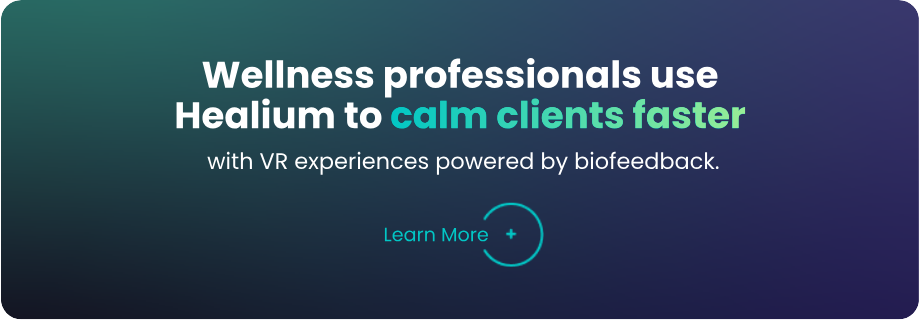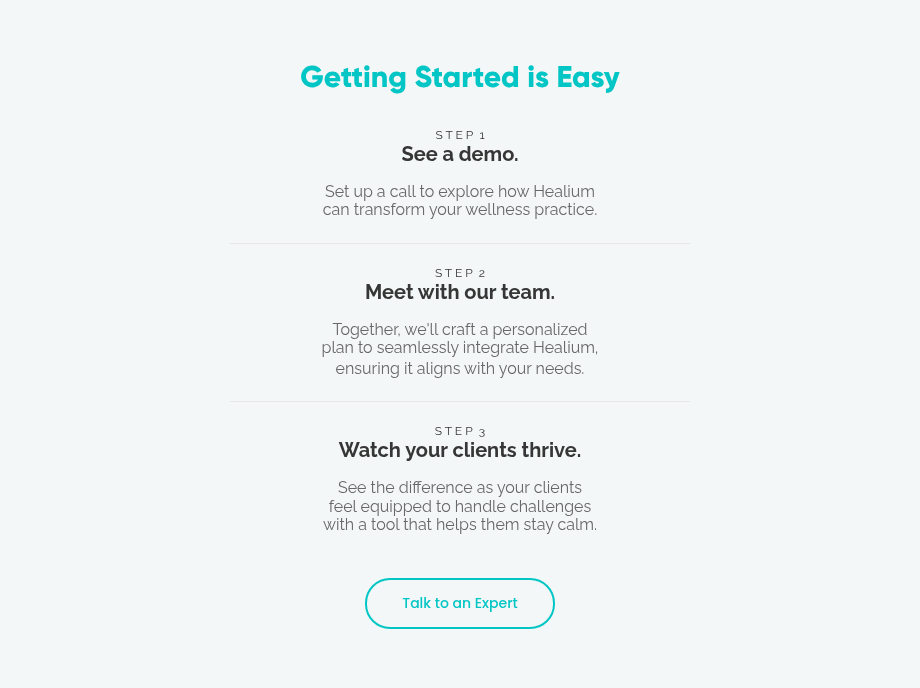Athletes use brainwave training to increase their readiness for competition and recovery during and after a competition. Learn how this technology works specifically for athletic performance.
Brainwave training is a very powerful tool that has been used by athletes since the 1980s. Athletes have used brainwave training (also known as neurofeedback) to increase their focus and reduce performance anxiety before competing or to improve their recovery times after competing.
How Does the Technology Work?
Neurofeedback training is designed to provide information about mental states based on brainwave patterns. It can be used to give the user insight into how their thoughts impact their performance, control emotional responses, and regulate behavior. By wearing a consumer-grade EEG headband during neurofeedback training, an athlete can see their brainwave data and gain insight into how they respond during stressful situations.
Healium’s technology works by showing users an aura.
Healium will measure your baseline biometrics. From there, you'll see your aura glowing green around you. As you begin your experience and start to calm your mind, the color will change to a beautiful gold. The aura personalizes the experience by providing visual feedback.
The algorithm then provides a feedback score to let the athlete know how well they are performing based on their brainwave activity. The scores are accessible in a personalized data dashboard so changes can be tracked over time.
What are the Main Benefits of Neurofeedback for an Athlete?
Neurofeedback training is used by professional, collegiate, and Olympic athletes to enhance performance and improve the athletes ability to control their own brainwaves. This can help reduce anxiety before a competition, improve concentration during a competition, and help with recovery after a strenuous workout. Neurofeedback is especially good for people who are prone to being distracted or have trouble with focus. It can also be helpful with certain types of cognitive problems like dyslexia or Attention Deficit Hyperactivity Disorder (ADHD).
In order to reduce reaction times and increase the number of correct decision-making outcomes, an athlete needs to be performing at their absolute peak. Using neurofeedback can help an athlete increase their mind-body connection so it becomes second nature to shift into a focused-calm state of flow.
What is the Best Way to Train with Neurofeedback Technology?
There are two times during an athlete’s training that we recommend using neurofeedback. First, is for readiness. When the athlete utilizes one of our many experiences aimed at focus, they work on hand/eye coordination, dial in their visual attention and increase their focus. This is very engaging and activating for the frontal lobe and allows the athlete to be mentally prepared to perform their assignments at their physical peak.
The second is for recovery. When the athlete engages in any one of our other experiences aimed at increasing feelings of positivity, calm or mindfulness the frontal lobe disengages and the athlete is able to help reduce the activity of their Central Nervous System. This deregulation of the CNS allows the athlete to begin the recovery and repair process sometimes hours earlier than they normally would. It also allows them to develop stored memories they can recall later during times of high stress to help them re-focus and access their flow state much easier.
Conclusion – How to Get Started with Brainwave Training if You’re an Athlete
Focusing on brainwave training is essential for athletes who want innovative, results-driven and proven methods of performance enhancement.








